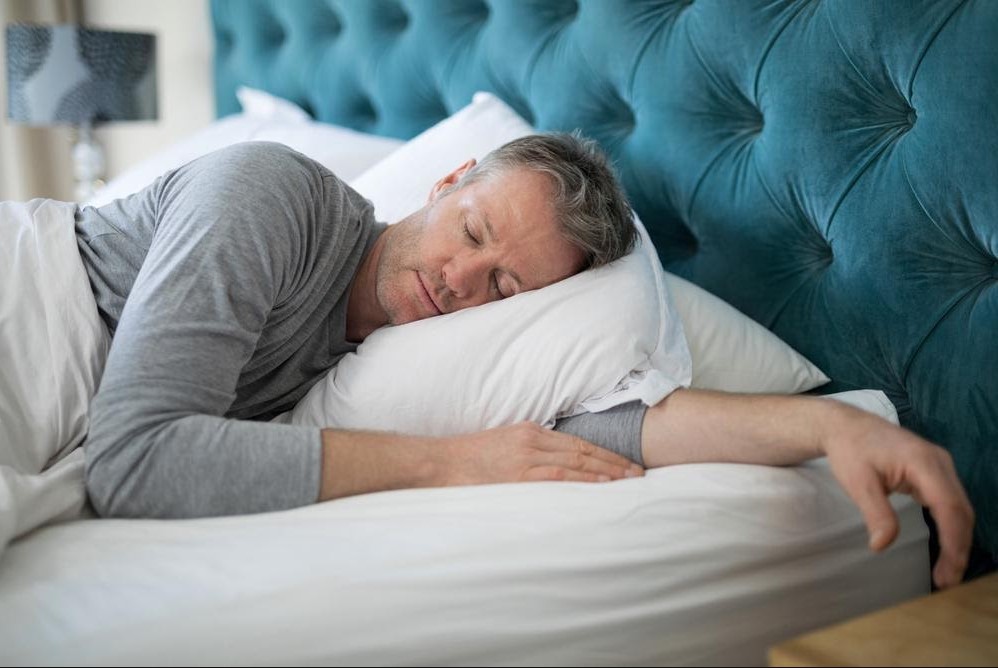5 Health Benefits of Getting a Good Night’s Sleep in 2024

If you don’t think you’re getting enough sleep at night, you’re far from alone. According to the experts at Sleep Advisor, most Americans don’t get the seven nightly hours of sleep recommended by the Centers for Disease Control and Prevention (CDC). What’s more, we sleep less as a society than we did before. Both men and women are resting almost an hour less per night than they did 80 years ago.
While sleep deprivation can leave you sluggish in the morning and fatigued during your workday, it can also contribute to a host of physical and mental problems. It may seem impossible for you to increase your resting hours, but there are basic things you can do to make strides in your sleep hygiene, such as having black out blinds to block lighting. To order yours today, check out Factory Direct Blinds. Learn how sleeping at least seven hours per night can make a difference in your overall wellness and what to do to increase your chances of getting a good night’s sleep.
1. Improve Your Brain Function

The National Sleep Foundation says that sleep is important to an alert and well-rested brain. Without enough sleep, it’s impossible to focus, learn and remember properly. Engaging in regular, healthy sleep allows our brain to decompress and recharge so it can take on essential information and solidify critical memories.
According to scientific research, the centers of the brain responsible for accuracy and speed are less active in those who haven’t slept. If you’re not going to bed early enough, you won’t be able to be as sharp or productive at school or work. It may even become more difficult to synthesize ideas and learn new skills. If you have a packed schedule, try increasing your sleep by 30-60 minutes on the weekend. Even a slight increase in sleep hours can make a big difference in your daily brain function.
2. Enhance Your Emotional Health

Sleep deprivation can have a major impact on your mind—and the symptoms can go far beyond grumpiness. The health experts at WebMD say that being sleepy can contribute to emotional health challenges, including significant mood changes such as increased anger and worsening depression. Over time, the chronic stress, anxiety or unhappiness you experience from a lack of sleep can even impact your relationships or career.
Prevent mental and emotional setbacks by viewing your sleep as a major life priority, not a luxury. If it takes you awhile to get ready in the morning, set out your clothes and accessories before you go to sleep. The time you save will allow you to adjust your alarm schedule or hit the snooze button. People who are busy in the evening may choose to push back their morning wakeup time. Check to see if you can change your shift at work, so you come in an hour later. You could also try exchanging home duties with your spouse or partner. Ask them to take the kids to school in the morning while you take on pickup duties in the afternoon.
3. Manage Your Weight

Some people exercise and eat healthfully, but still can’t make their goal weight. If this sounds like you, you may be hindered by sleep deprivation or chronic stress. According to the Harvard School of Public Health, research suggests that adults who don’t sleep enough have an increased risk of obesity and weight gain.
The university’s doctors recommend getting seven to eight hours of nightly sleep to help meet your weight loss goals. Get eight hours of rest as much as possible for the best health results. Better sleep hygiene can help decrease hunger.
4. Control Your Chronic Conditions

Men and women who live with Type 2 diabetes or obesity will often need help controlling their blood sugar. Scientific studies show that sleeping longer can lower blood glucose levels, which can be beneficial for people with these chronic health conditions. Better sleep can also help to regulate your blood pressure, the Mayo Clinic says.
If you have a heart condition, it’s also essential to get enough sleep every night. Quality rest helps your cardiovascular system work more efficiently. It can also decrease your chances of developing or dying from coronary heart disease. Those who have chronic health issues should see their doctor regularly and discuss the impact of sleep deprivation on their condition. Have a discussion with your physician about how you can build more rest and stress relief into your schedule.
5. Stay Alert on the Road

A good night’s sleep can protect your health by decreasing your risk of an accident. The CDC says drowsy driving is responsible for hundreds of deaths and tens of thousands of injuries annually. While Consumer Reports says prescription sleep aids are part of the problem, the biggest offenders are people who do not get enough sleep at night.
To protect your health and the safety of others, don’t drive if you haven’t had at least seven consecutive hours of sleep. If you are planning a trip or you drive for work, make sure you rest at least seven to eight hours before you get behind the wheel. If you do take prescription sleep aids, wait several hours before driving. Talk to your doctor about how long it typically takes for the medication to wear off.
The Best Way to Get a Good Night’s Sleep
Along with the tips above, you can increase your chances of a restful night by creating a comfortable sleep environment. Make sure your room’s temperature is set to a comfortable setting. Many people feel cool and relaxed with an ambient temperature around 68-70 degrees Fahrenheit. Blackout window shades will block out sunlight and keep your space from heating up in the morning. Quality pillows and bedding can make it easier to stay asleep, while white noise machines or fans assist light sleepers with continuous rest. Keep your technology away from your bed, so you aren’t tempted to scroll or stream.
With a little experimentation and persistence, you can create a better sleep schedule and enjoy better health. It shouldn’t take long for you to notice the results. Just a few weeks of catching up on sleep can make you feel more positive, alert and sharp. Over time, you may also find that it improves your physical health.




